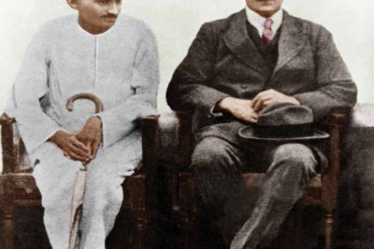On 15 November 2009, The Week released its annual list of the country’s best hospitals, categorized by specialties such as cardiology, oncology, orthopaedics, gastroenterology, ophthalmology, and paediatrics.
The rankings were based on a 14-city survey conducted by The Week in collaboration with IMRB, a market research agency. The survey included responses from 10 specialists across 10 specializations and 1,190 general practitioners. According to the results, the All India Institute of Medical Sciences (AIIMS), Delhi—receiving an annual government funding of approximately Rs. 7,000 million—was ranked as the best hospital in the country. Several well-known public and private sector hospitals also made it to the top 10.
However, it remains unclear whether these rankings were based on objective scores for quality and efficiency. The study design and methodology used to determine the top hospitals are not disclosed, casting doubt on the survey’s accuracy and reliability.
For hospital rankings to be meaningful, they must be based on rigorous and transparent evaluation methods. First, the sample must be representative of the community. Second, the assessment should focus on patient-centered outcomes that truly matter, such as survival rates, complication rates, and recovery times. Third, patient satisfaction with the quality of care should be a crucial factor in the evaluation.
How are the best hospitals in the United States assessed? Their rankings incorporate metrics such as mortality rates, medical complications, patient safety incidents, medical errors, disease severity-adjusted outcomes, and average hospital stay. For instance, when The Johns Hopkins Hospital was named the best among 4,800 hospitals in the U.S. in September, the evaluation was based on five key indicators: mortality rates, medical complications, patient safety, length of hospital stay, and adherence to clinical care standards. Such objective criteria enable a fair and unbiased comparison of hospitals nationwide. Additionally, patient satisfaction is given significant weight in these rankings.
In contrast, The Week survey appears to rely primarily on reputation and anecdotal success stories, as though objective ranking parameters do not exist. This is problematic. Reputation alone is a flawed metric because a small group of prominent hospitals in each specialty often receives disproportionately high scores, securing top rankings regardless of their actual performance. Consequently, many public hospitals providing high-quality, affordable healthcare are overlooked.
David Dranove, writing in JAMA , noted that magazines frequently design and publish “Best Hospital” surveys to boost their sales and attract advertising revenue. A glance through The Week reveals full-page, multi-coloured advertisements from several hospitals, including Nethradhama Superspeciality Eye Hospital (Bangalore), Sir Ganga Ram Hospital (Delhi), Apollo BSR Hospital (Bhilai), Columbia Asia (Bangalore), MGM New Bombay Hospital (Vashi), and GEM Hospital (Coimbatore). Is it mere coincidence that some of these hospitals also featured in the survey’s top rankings?
Do these hospitals genuinely offer the best care for patients seeking affordable, evidence-based, and patient-centered treatment? Are such surveys truly capable of identifying the best hospitals for millions of underprivileged people in the country?
I remain skeptical.


Every word u have written is true.
Most of such surveys are marketing gimmicks by those very hospitals enlisted.
A single visit to these so called TOP NOTCH INSTITUTES and things become crystal clear.
Very tru. 70% of Indian population resides in villages. You must have Money and/or
Re(sources)to have seen at such big hospitals, treatment comes later.
Ramji
I have always wondered what is the denominator in these surveys. How many colleges were included and what criteria were used to determine the best. I wonder why AIIMS finds its way to the top always?
It is indded a fact that such surveys are like self promotion awards. We never bother about such stunts. Best way to judge a hospital is 'Patient satisfaction score'.